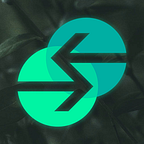Introducing Unizen Supernode Program
Unizen will support emerging blockchain projects by running validator nodes/ providing liquidity. Validation network will consist of validation supernodes, run by Unizen as well as partner projects, and smaller nodes that can be run by any user. Partners in the Supernode program are selected by the team and heavily contribute to the growth and development of the ecosystem. “Unizen Supernodes” are the validator nodes run by Unizen in order to support and secure the selected networks.
Validation Nodes and Supernodes
A validator can be a simple computer that provides its CPU/Computation resources.
Validator nodes determine the degree of decentralization of a particular project. Lesser nodes mean the network is controlled by a few entities and is centralized. More nodes distributed globally show decentralization.
To achieve that, validator nodes should provide the network with considerable computing power, stable performance, and top-notch security. On top of that, the system should be heavily decentralized — to avoid the possibility of breaching a single weaker link.
This is why Unizen chose a combined approach to its validation process. Supernodes, established by highly experienced teams, constitute the core of the blockchain network. They are highly performing, exceptionally secure, and most importantly, very stable. Unizen will work with each team to assure uninterrupted and predictable performance of the Supernode.
The inclusion of team-based supernodes has many advantages.
- Contributing to the highly scalable and cost-efficient blockchain. Unizen will help these projects get exposure for mass adoption”
- Building a network with leading DeFi projects. Teams that provide a supernode for Unizen will be our long-term partners for ecosystem growth. Unizen offers multiple advantages for participating in the validator node programs, and projects respond by including Unizen to special partnership programs (more information later in individual announcements).
- Lowering the cost for user participation. Without highly-performing nodes in the system, achieving the same level of performance would require placing this workload on individual validators. Most existing validation programs have strict conditions for validator’s technical specifications, which limits the participation of small investors.
Decentralization
Blockchain security relies on decentralization and network effects between the participants of the validation system. How is Unizen’s approach congruent with decentralization values and in what way does it ensure high-level security?
Supernode Partners, being responsible for most transactions, are rigorously selected. The conditions that the team must meet to be eligible for the Supernode Partnership Program set benchmarks for minimal threshold performance capacity, security requirements, and long-term scalability. The entire team of the partnered project is responsible for providing a secure and highly-performing node.
Each supernode can be removed from the network anytime, if its performance violates the participation conditions. The agreements between the Unizen network and the supernode provider describe the set of penalties for malicious behaviors. The extent of their severity is directly proportional to node’s involvement in the network (based on computing power and its availability).
The Unizen Supernodes will be constantly increasing in number, leading to even higher decentralization and performance. The Unizen community will be constantly updated on the progress of adding new Supernodes to the system — along with the comprehensive introduction of the teams and details of their nodes.
Inorder to bring mass exposure to projects under Unizen Supernode Program, some portion of validator rewards can also be part of DMAS pools.
Unizen Supernode Partners
The program consists of four networks that Unizen will be supporting by running nodes. These are :
Constellation Network
Constellation is a highly scalable protocol, based on directed acyclic graph. It revolutionizes data security and data-driven smart contracts by providing fast, secure verification via decentralized consensus. Unizen will be running a validator node for The Constellation Network, as the key partner of the ecosystem.
Unizen views Constellation Network as a long-term partner (more to follow soon). We are also grateful to the Constellation community for supporting Unizen from our earliest days — some of you might remember their enthusiastic participation in the first edition of Tournaments of Alts. So, we are thrilled to let you know that in addition to running the DAG node, Unizen will also list DAG on Unizen CEX module.
Kadena
Kadena is a hybrid blockchain network that combines public and private chains, and offers no-cost, fast, scalable transactions. With Pact, custom smart contract language, communities and companies can build applications for multiple use cases. Also being a partner, Unizen is set to run a validator node for Kadena.
Sifchain
Sifchain is a multi-currency blockchain that allows hosting all kinds of decentralized applications, particularly in DeFi. We already announced our partnership with Sifchain as the source of deep DEX liquidity. On top of that the team will also be running the validator node for the exchange.
Zenon
Zenon is a scalable, self-reliant ecosystem for DeFi transactions and investments. The Alphanet network covers all the aspects of DeFi (transactions, storage, high APY investment programs), lowering the entry barrier to decentralized finance by providing all in one network for crypto transactions. We are excited to be running the Zenon Pillar Node, which will help in Zenon’s adoption.
